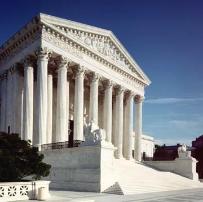Last week, the Supreme Court once again waded into the murky legal waters of the War on Terror. In Boumediene v. Bush, a deeply divided court struck down a provision of the Detainee Treatment Act that limited the access to judicial review by detainees in Guantanamo seeking to challenge their classification as "enemy combatants." The legal rationale for this decision, although controversial, was not complicated: aliens held by the United States in areas where the U.S. exercises sovereignty are protected by the Constitution; Guantanamo is within the de facto sovereignty of the United States; the Congress had not suspended the writ of habeas corpus as required by the Constitution; and because the judicial review provisions of the Detainee Treatment Act were not a sufficient substitute for the writ of habeas corpus, the provisions of that Act unconstitutionally deprived detainees of the constitutional right to have their claims fully assessed by federal courts. This was not the first time the Supreme Court invalidated government action related to the war on terror. First in Rasul v. Bush, and later in Hamdan v. Rumsfeld, the Court struck down assertions of plenary presidential authority to establish rules related to both the detention and trial of alleged "enemy combatants." But unlike those prior cases, in Boumediene the court was not reviewing an assertion of exclusive executive authority. Instead, for the first time, the court struck down a law -- the result of the coordinated decision making of both the Congress and the president. Because of this, Boumediene has already been hailed by some as a landmark decision restoring the rule of law in times of national security crisis; and condemned by others as an unjustified intrusion by the judiciary into a realm of decision making entrusted to the political branches of our government (which was the primary theme of the dissenting opinion written by Chief Justice John Roberts). Regardless of which side of this divide one falls on, this decision raises important questions not only about the role of judiciary in overseeing the treatment of detainees, but also the role of the judiciary in the national security process.
Boumediene v. Bush and the Role of the Courts in the War on Terror

